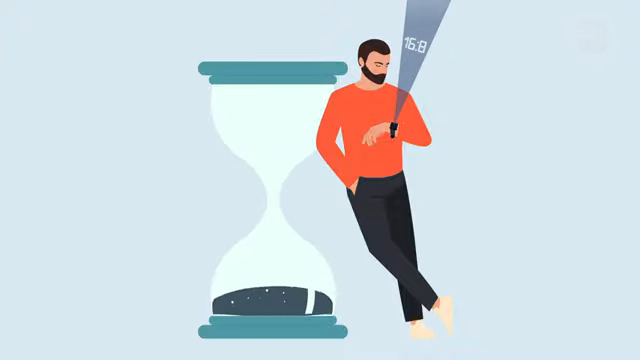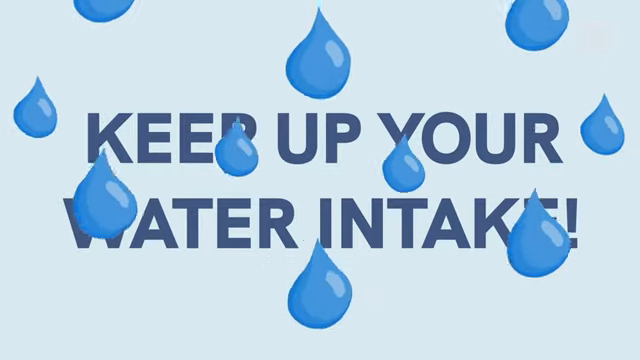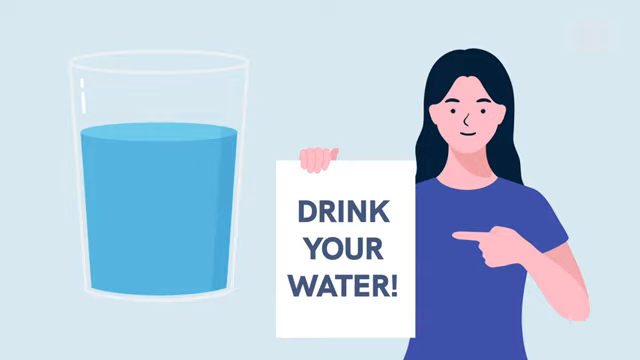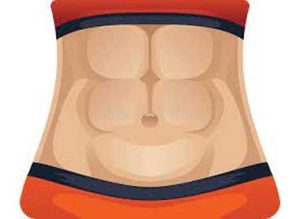
Intermittent fasting has become increasingly popular in recent years as a weight loss strategy. It involves alternating periods of eating with periods of fasting, and there are several different approaches to this eating pattern. In this article, we’ll explore the different types of intermittent fasting and how they can help you lose weight.
What is Intermittent Fasting?
Intermittent fasting involves periods of food restriction, followed by periods of unrestricted eating. There are several different approaches to intermittent fasting, including the 16/8 method, which involves fasting for 16 hours and eating within an 8-hour window, and the 5:2 method, which involves eating normally for 5 days and consuming only 500-600 calories on 2 non-consecutive days.
How Does Intermittent Fasting Help with Weight Loss?
Intermittent fasting can help with weight loss in several ways. First, it can reduce the number of calories you consume, as you have fewer hours in the day to eat. Additionally, fasting can help regulate hormones that control appetite and metabolism, leading to a reduction in calorie intake and an increase in fat burning.
Types of Intermittent Fasting
There are several different types of intermittent fasting, including:
- 16/8 Method: This involves fasting for 16 hours and eating within an 8-hour window.
- 5:2 Method: This involves eating normally for 5 days and consuming only 500-600 calories on 2 non-consecutive days.
- Eat-Stop-Eat: This involves fasting for 24 hours once or twice a week.
- Alternate-Day Fasting: This involves fasting every other day and eating normally on non-fasting days.
- Warrior Diet: This involves eating one large meal at night and fasting during the day.
Tips for Success with Intermittent Fasting
To successfully implement intermittent fasting for weight loss, it’s important to:
- Choose an approach that fits your lifestyle and preferences.
- Start slowly and gradually increase fasting periods.
- Stay hydrated during fasting periods.
- Eat healthy, nutrient-dense foods during eating periods.
- Listen to your body and adjust your fasting periods as needed.
Let’s watch Dr.Andrew Huberman in this video discussing the science and practice of fasting:
What are some healthy foods I can eat during my eating periods?
During your eating periods in an intermittent fasting diet, it’s important to consume healthy, nutrient-dense foods to support your overall health and weight loss goals. Here are some healthy foods you can consider incorporating into your meals:
- Lean proteins: Chicken, turkey, fish, eggs, tofu, and legumes are all excellent sources of protein that can help you feel full and satisfied.
- Whole grains: Whole grains like brown rice, quinoa, and oats are rich in fiber, which can help regulate blood sugar levels and keep you feeling full.
- Fruits and vegetables: Fruits and vegetables are packed with vitamins, minerals, and fiber, making them an excellent choice for a nutritious meal. Aim for a variety of colors to ensure you’re getting a wide range of nutrients.
- Healthy fats: Healthy fats like avocado, nuts, seeds, and olive oil can help keep you feeling full and satisfied, while also providing important nutrients for your body.
- Low-fat dairy: Dairy products like milk, yogurt, and cottage cheese are excellent sources of protein and calcium, but make sure to choose low-fat or non-fat options to keep your calorie intake in check.
Remember, even during your eating periods, it’s important to monitor your portion sizes and overall caloric intake to ensure you’re creating a calorie deficit for weight loss. Eating a balanced, healthy diet and combining it with regular exercise can help you achieve your weight loss goals and improve your overall health.
What are the main low-calorie meal plans for intermittent fasting?

Certainly! Here are some low-calorie meal plans that you can consider incorporating into your intermittent fasting routine:
Option 1: 16/8 Method
This meal plan involves eating within an 8-hour window and fasting for 16 hours. Here’s an example of a low-calorie meal plan for the 16/8 method:
- Breakfast (9:00 am): Greek yogurt with berries and a sprinkle of granola (200 calories)
- Snack (12:00 pm): Apple slices with almond butter (150 calories)
- Lunch (1:30 pm): Grilled chicken breast with roasted vegetables (300 calories)
- Snack (4:00 pm): Carrots and hummus (100 calories)
- Dinner (6:00 pm): Baked salmon with quinoa and steamed broccoli (400 calories)
- Snack (7:30 pm): Herbal tea or a small piece of dark chocolate (50 calories)
Total calories: 1200
Option 2: 5:2 Method
This meal plan involves eating normally for 5 days and consuming only 500-600 calories on 2 non-consecutive days. Here’s an example of a low-calorie meal plan for the 5:2 method:
- Breakfast (8:00 am): Hard-boiled egg and a slice of whole wheat toast (150 calories)
- Snack (11:00 am): Apple slices with almond butter (150 calories)
- Lunch (1:00 pm): Mixed greens salad with grilled chicken, vegetables, and a vinaigrette dressing (250 calories)
- Snack (3:30 pm): Carrots and hummus (100 calories)
- Dinner (6:00 pm): Grilled fish with roasted vegetables (300 calories)
- Snack (7:30 pm): Herbal tea or a small piece of dark chocolate (50 calories)
Total calories: 1000
Remember, these meal plans are just examples, and you can adjust them based on your calorie needs and food preferences. Also, make sure to drink plenty of water during your fasting periods to stay hydrated and help control your appetite.
What are some tips for staying hydrated during fasting periods?

Staying hydrated during fasting periods is important to support your overall health and wellbeing. Here are some tips for staying hydrated during your fasting periods:
- Drink plenty of water: Water is essential for staying hydrated, so aim to drink at least 8-10 glasses of water per day. You can also try herbal tea or flavored water to add some variety to your hydration routine.
- Consume electrolytes: Electrolytes like sodium, potassium, and magnesium are essential for hydration and can be lost during fasting. Consider adding a pinch of sea salt to your water, or drinking coconut water or bone broth to replenish electrolytes.
- Avoid dehydrating beverages: Beverages like coffee, tea, and alcohol can have a diuretic effect, which can lead to dehydration. Try to limit your consumption of these beverages during fasting periods, or drink them in moderation and make sure to hydrate with water as well.
- Eat hydrating foods: Some fruits and vegetables, like watermelon, cucumber, and celery, have a high water content and can help you stay hydrated. Consider incorporating these foods into your meals during your eating periods.
- Listen to your body: Pay attention to your body’s signals of thirst and make sure to drink water or other hydrating beverages when you feel thirsty. Don’t wait until you’re feeling dehydrated to start hydrating.
Remember, staying hydrated is important for your overall health and wellbeing, but it’s also important to listen to your body and adjust your hydration routine as needed. If you’re feeling thirsty or dehydrated during your fasting periods, make sure to drink plenty of water and replenish electrolytes as needed.
How much water should I drink during my eating periods?

The amount of water you should drink during your eating periods depends on several factors, such as your age, gender, body weight, and activity level. However, a general guideline is to aim for at least 8-10 cups (64-80 ounces) of water per day.
During your eating periods in an intermittent fasting diet, it’s important to stay hydrated to support your overall health and weight loss goals. Drinking enough water can help you feel full and satisfied, prevent overeating, and improve digestion.
In addition to drinking water, you can also consume other hydrating beverages and foods like herbal tea, coconut water, and water-rich fruits and vegetables.
Remember, listening to your body is the key. If you’re feeling thirsty or dehydrated, drink water or other hydrating beverages. If you’re not sure if you’re drinking enough water, you can monitor your urine color, which should be light yellow or clear in color. If your urine is dark yellow, it may be a sign that you need to drink more water.
How can I make sure I’m drinking enough water throughout the day?
Here are some tips to help make sure you’re drinking enough water throughout the day:
- Carry a water bottle: Having a water bottle with you at all times can make it easier to drink water throughout the day. Choose a bottle that’s easy to carry around and refill, and make sure to take sips regularly.
- Set reminders: If you have trouble remembering to drink water, consider setting reminders on your phone or computer to remind you to take a sip every hour or so.
- Keep track of your intake: Keeping track of how much water you’re drinking can help you stay accountable and make sure you’re drinking enough. You can use a water tracking app or simply mark off how many glasses you’ve had on a piece of paper.
- Drink water with meals: Drinking water with meals can help you stay hydrated and improve digestion. Aim to have a glass of water with each meal, and sip on water throughout the day.
- Flavor your water: If you find plain water boring, try adding some flavor to it with slices of citrus fruits, cucumber, or herbs like mint or basil. This can make drinking water more enjoyable and help you drink more of it.
Remember, staying hydrated is important for your overall health and wellbeing, so make sure to prioritize drinking enough water throughout the day. By incorporating these tips into your routine, you can make it easier to stay hydrated and support your weight loss goals.
Conclusion
Intermittent fasting can be an effective weight loss strategy, but it’s important to choose an approach that’s sustainable and fits your lifestyle. By combining intermittent fasting with healthy eating habits and regular exercise, you can achieve your weight loss goals and improve your overall health.




